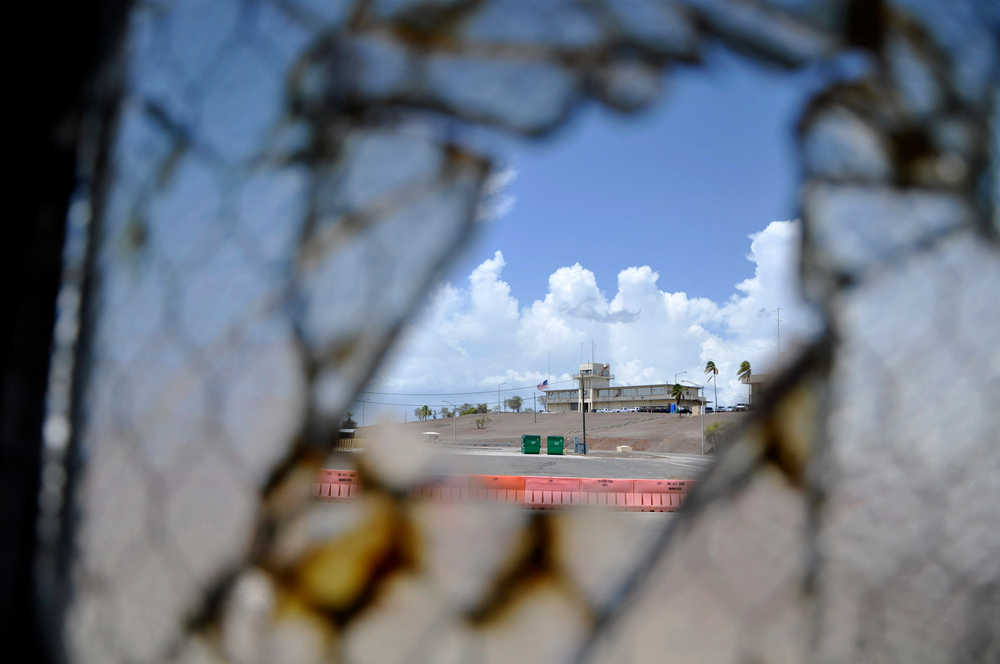GUANTANAMO BAY NAVAL BASE, Cuba — Attorney James Connell has visited his client inside the secret Guantanamo prison complex known as Camp 7 only once, taken in a van with covered windows on a circuitous trek to disguise the route on the scrub brush-and-cactus covered military base. Connell is allowed to say virtually nothing about what he saw. It’s a secret camp where the most notorious terror suspects in U.S. custody are held except that it is unlike any detention facility he’s encountered.
“It’s much more isolating than any other facility that I have known,” the lawyer says. “I’ve done cases from the Virginia death row and Texas death row and these pretrial conditions are much more isolating.”
The Camp 7 prison unit is so shrouded in secrecy that its location on the U.S. base in Cuba is classified and officials refuse to discuss it. Now, two separate but related events are forcing it into the limelight.
In Washington, the Senate Intelligence Committee voted on April 3 to declassify a portion of a review of the U.S. detention and interrogation program in the aftermath of the Sept. 11, 2001, al-Qaida attack. The report, the release of which is opposed by the CIA, is expected to be sharply critical of the treatment of prisoners, including some now held in Camp 7.
And on Monday, a judge in Guantanamo will open a hearing into the sanity of one of those prisoners, Ramzi Binalshibh, whose courtroom outbursts about alleged mistreatment in Camp 7 have halted the already bogged-down effort to try five men in the Sept. 11 attacks, all of whom are held there. Both issues are deeply intertwined. Binalshibh has accused the government of making noises and vibrations inside Camp 7 to deliberately keep him awake, reminiscent of the intentional sleep deprivation, along with other forms of abuse, that his lawyers say he endured at the hands of the CIA from the time he was captured in Pakistan in September 2002 to when he was brought to Guantanamo four years later.
Military officials deny doing anything intentional to disrupt his sleep. Prosecutors say his accusations are delusions, though they still believe he is mentally competent to stand trial. His lawyers say he is competent, but are not convinced officials have adequately investigated his complaints.
His mental state is somewhat murky. Court records show Binalshibh has been treated while in Guantanamo with medications that are used for bipolar disorder and schizophrenia, but he did not participate in a court-ordered mental evaluation in January.
“The problem is that because everything is done in secret and there is so little opportunity for even the lawyers to have access to their clients it’s difficult for anybody to figure out what is actually happening,” said Fitzgerald, who is at the base to observe the sanity board proceedings.
Camp 7 has never been part of the scripted tours of Guantanamo. It’s not even mentioned on a military media handout about the detention center, which otherwise notes that the military “conducts safe, humane, legal and transparent care and custody of detainees.”
Military officials, while insisting that they adhere to international human rights standards, refuse to describe Camp 7. “I’m not even functionally allowed to discuss the place,” said Army Lt. Col. Todd Breasseale, a Pentagon spokesman.
A few facts have come out through government reports and court testimony. It apparently holds 15 of the 154 prisoners at Guantanamo.
The men are apparently held in solid-walled cells — as opposed to the cage-like structures used soon after the U.S. began using Guantanamo as a prison in 2002 — that are intended to limit their ability to communicate with each other, and they are allowed up to four hours per day of exercise, according to a Government Accountability Office report.

